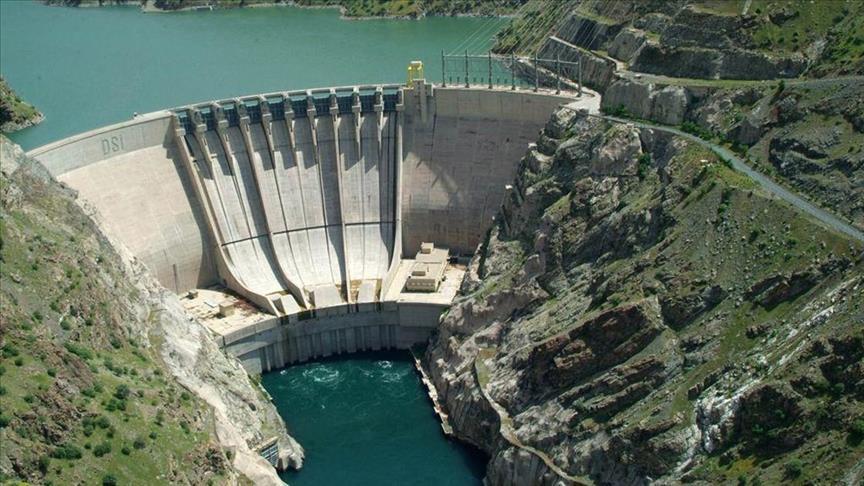Africa, where energy demand is rising at twice the global average, has the potential to become the first continent to grow its economy primarily through renewable and efficient energy sources.
Hydropower, long a cornerstone of this ambition, is now receiving renewed attention across the continent.
As of early 2023, the Central African Power Pool (CAPP) region had just over 11 gigawatts (GW) of installed power generation capacity, with hydropower accounting for around 75%.
A report by the International Renewable Energy Agency (IRENA) shows that hydropower represents more than 85% of planned new capacity in the region.
Rodney Katongo, CEO of Africa Access Water, said the region's abundant water resources offer a clear path forward.
"Hydropower can indeed play a central role in Central Africa's sustainable development," Katongo told Anadolu.
"Properly managed, it can support industrial growth, power rural electrification, and drive regional integration, all while contributing to climate change mitigation," he added.
According to the report, the Grand Inga hydropower project in the Democratic Republic of the Congo holds over 20 GW of hydropower potential, nearly double the current total installed capacity of all Central African countries combined.
This project's potential development is emblematic of the region's ambition to become an electricity exporter to the continent and underscores its rich renewable energy resources.
"The region's abundant water resources, especially the Congo River Basin, offer significant untapped potential for clean, renewable energy generation," Katongo noted.
- Hydropower to supply nearly 70% of all electricity by 2040
The report emphasizes that hydropower remains the largest renewable electricity source across Central Africa and is expected to supply nearly 70% of all electricity by 2040.
However, Katongo urged caution in depending too heavily on a single energy source.
"While the ambition to meet 70% of electricity demand with hydropower by 2040 is commendable, it may be overly optimistic," he said.
He noted that achieving this would require unprecedented levels of investment, fast-tracked infrastructure development, and improved regional energy markets.
"A more realistic path would be a diversified energy mix, where hydropower plays a major role alongside solar, wind, and other renewables, ensuring both sustainability and resilience," he continued.
The report warns that without the full development of large-scale projects like Grand Inga, the region's interconnector capacity could fall by 73%, with electricity exports declining by more than 80, underscoring the strategic importance of such projects.
To meet demand by 2040, the region would need to invest over $5 billion annually, with cumulative costs ranging from $97 billion to $145 billion, depending on the pace of infrastructure development and demand growth, according to the report.
- Hydropower dominates regional power supply
Angola's 2,070 MW Lauca hydropower plant is now fully operational, strengthening the country's power supply and contributing to socioeconomic development.
The nation is also working with Chinese partners on the 2,172 MW Caculo-Cabaça project, according to the International Hydropower Association.
In Tanzania, the 2,115 MW Julius Nyerere Hydropower Project has begun feeding electricity into the national grid, while Zambia's ZESCO recently completed the 750 MW Kafue Gorge Lower project.
Still, challenges remain. Katongo said that realizing Africa's full hydropower potential is possible, but will require overcoming significant hurdles, including financing gaps, political instability, and weak transmission infrastructure.
He added that projects must also be climate-resilient and inclusive to succeed.
Climate change is a growing concern, Katongo warned. "Droughts and erratic rainfall patterns can seriously compromise the reliability of hydropower," he said.
"Future projects must incorporate climate risk assessments and adaptive measures, such as integrating hydropower with other renewable sources like solar, wind, and hydrokinetic technologies, to ensure energy security and resilience," he added.
Africa is home to nearly half of the world's untapped hydropower potential. But while progress is underway, the continent's mega-dam ambitions continue to face delays tied to financing gaps and implementation challenges, raising concerns about whether timelines and investment goals can be achieved.
By Humeyra Ayaz
Anadolu Agency
energy@aa.com.tr


